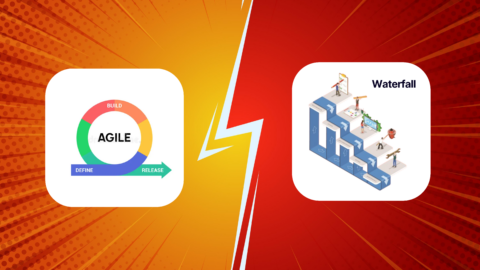As the world becomes increasingly digital, traditional banks are being challenged by a new generation of financial institutions known as neo-banks. These companies, also called fintech, are using advanced technology to provide a range of financial services in a more customer-centric and convenient way. In this blog post, we’ll explore the rise of neo-banks and how they’re redefining banking as we know it.
Neo-banks and Traditional Banks
While neo-banks is still relatively new, they’re already having an impact on the financial industry. Traditional banks are feeling the pressure to innovate and offer more digital services to remain competitive. At the same time, neo-banks are beginning to collaborate with traditional banks to offer a wider range of services. While there are differences in their business models, both types of banks have something to offer consumers.
Characteristics of Neo-banks:
One of the main characteristics of neo-banks is that they operate entirely online, without any physical branches. This digital-first approach allows them to offer more efficient and cost-effective service. They also tend to be more customer-centric, with features such as personalized recommendations, instant notifications, and user-friendly interfaces. Neo-banks are known for their advanced technology and innovation, including AI-powered chatbots, biometric authentication, and instant payments. Finally, many neo-banks offer low or no fees, making them an attractive option for consumers tired of high banking fees.
Advantages of Neo-banks
One of the main advantages of neo-banks is their convenience. With a few taps on your smartphone, you can open an account, deposit money, transfer funds, and pay bills. Additionally, neo-banks offer a more personalized service, with features such as spending insights and budgeting tools. They’re also more flexible than traditional banks, with no minimum balance requirements or monthly fees. Finally, neo-banks are known for their speed, with transactions happening in real-time or near-real-time.
Examples of Neo-banks
Chime
Chime is a US-based neo-bank that offers fee-free banking services and a mobile app that allows customers to manage their accounts, track their spending, and save money.
Revolut
Revolut is a UK-based neo-bank that offers a range of banking services, including foreign exchange, cryptocurrency trading, and insurance, as well as a mobile app that allows customers to manage their accounts.
N26
N26 is a German-based neo-bank that offers banking services across Europe and the US, including checking and savings accounts, credit cards, and investment options.
Monzo
Monzo is a UK-based neo-bank that offers mobile banking services, including a debit card and app that allows customers to track their spending, set budgets, and save money.
Varzo
Varo is a US-based neo-bank that offers fee-free banking services, savings accounts, and a mobile app that helps customers manage their finances and save money.
Starling Bank
Starling Bank is a UK-based neo-bank that offers mobile banking services, including checking and savings accounts, loans, mortgages, and business banking services.
These are just a few examples of the many neo-banks that have emerged in recent years. Each of these banks offers unique features and benefits, but they all focus on innovation, convenience, and customer-centricity.
Challenges faced by Neo-banks
Despite their advantages, neo-banks face many challenges. One of the main challenges is regulatory compliance. Neo-banks need to comply with a range of regulations related to anti-money laundering, data protection, and consumer protection. Additionally, neo-banks need to be vigilant about cybersecurity, as hackers often target them due to the sensitive information they hold. Finally, neo-banks need to earn the trust of consumers, who may be hesitant to entrust their money to a company that doesn’t have a physical presence.
Final Thoughts
The rise of neo-banks is an exciting development in the financial industry. With their focus on customer-centricity, convenience, and innovation, they’re challenging traditional banks to do better. However, as with any new technology, there are challenges to overcome. We encourage consumers and businesses to explore neo-bank options and see if they might be a good fit for their financial needs. As the industry continues to evolve, we can expect to see even more.










